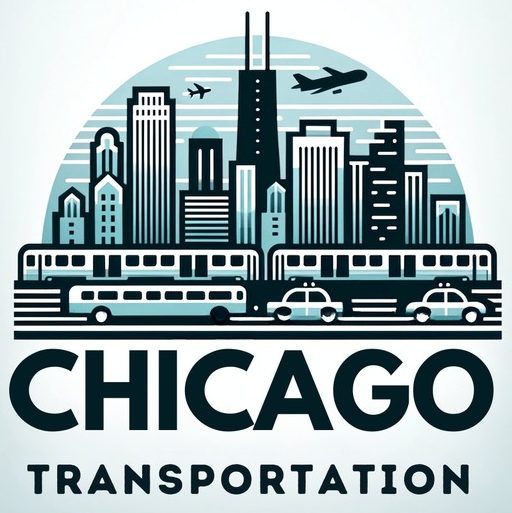Chicago’s highway maintenance comes at a high cost, impacting the city’s infrastructure and transportation system. The inefficient allocation of funds has resulted in poor pavement conditions and increased congestion in urban areas, leaving Illinois roads ranking 40th in terms of cost-effectiveness and conditions nationwide. To address these issues, the state has implemented the “Rebuild Illinois” plan and secured federal funding from the infrastructure bill. However, the challenges of insufficient funding and the need for better resource allocation remain.
Key Takeaways:
- Chicago’s highway maintenance has been costly due to ineffective spending and poor pavement conditions.
- Illinois ranks 40th in the US for cost-effectiveness and conditions of its roads.
- The state has implemented the “Rebuild Illinois” plan and secured federal funding to address the infrastructure challenges.
- Insufficient funding and the lack of resource allocation continue to pose challenges for Chicago’s highway maintenance.
- Long-term revenue solutions and innovative funding strategies are being considered to ensure the sustainable maintenance of the city’s highways.
The Challenges of Insufficient Funding
The insufficient funding for highway maintenance in Illinois has had a detrimental impact on the state’s infrastructure. Despite doubling the gas tax as part of the “Rebuild Illinois” plan, the funds generated are still inadequate to cover the cost of maintaining and improving the transportation system. As a result, the condition of Illinois roads continues to deteriorate, posing significant consequences for both commuters and the economy.
Impact on Infrastructure: With limited funding, Illinois struggles to address crucial infrastructure needs. Potholes, deteriorating bridges, and congestion persist, affecting the overall quality and safety of the state’s highways. Without proper maintenance and investment, these issues can lead to increased accidents, longer commute times, and a negative perception of Illinois as an attractive place for businesses and economic growth.
“The lack of sufficient funding for highway maintenance is a ticking time bomb for Illinois. Without the necessary resources, it’s impossible to keep up with repairs and improvements, which ultimately impacts the daily lives of Illinoisans and the economic vitality of the state.”
The Consequences of Low Spending
Insufficient funding for highway maintenance has far-reaching consequences that extend beyond infrastructure deterioration. The consequences include:
- Increased vehicle maintenance costs for Illinois residents due to poor road conditions.
- Higher transportation costs for businesses, as trucks and vehicles experience more wear and tear on neglected roads.
- Reduced efficiency in transportation, with congestion and delays leading to productivity losses.
- A decline in the state’s attractiveness for tourism and business investment, as a well-maintained infrastructure is essential for economic growth.
Without addressing the challenges posed by insufficient funding, Illinois will continue to face a mounting infrastructure crisis that hampers its growth and development. The state must explore innovative solutions and prioritize long-term funding strategies to ensure the vitality of its transportation system.
Potential Solutions for the Future
When it comes to addressing the revenue needs for Chicago’s highway maintenance and ensuring long-term sustainability, several potential solutions have emerged. One option is to explore the implementation of a per-mile toll system. By charging drivers based on the distance they travel, this approach could generate the necessary funds to cover the cost of maintenance and improvements. However, it’s important to note that current federal laws prohibit tolling on existing interstates, which presents a significant hurdle to overcome.
Conducting a thorough cost-benefit analysis
A crucial step in optimizing infrastructure investments is the rigorous evaluation of costs and benefits. By prioritizing projects that deliver the highest return on investment, resources can be allocated more effectively. This approach ensures that every dollar spent contributes to improving the condition of Chicago’s highways and tackling congestion issues. A comprehensive and data-driven cost-benefit analysis helps guide decision-making and maximizes the impact of available funds.
Exploring long-term revenue solutions
To establish a sustainable and reliable source of funding, long-term revenue solutions are necessary. One proposal is the implementation of a road user fee based on the number of miles driven and the weight of vehicles. This fee system would ensure that those who use the highways contribute proportionally to their maintenance. Other innovative funding strategies, such as a vehicle miles traveled tax or GPS-based mileage programs, have been successfully implemented in other states and could provide valuable insights for Chicago’s infrastructure challenges.
Looking to successful funding models
Examining and learning from the funding models of other states that have effectively addressed similar challenges can offer valuable lessons. By adopting successful strategies and adapting them to Chicago’s specific needs, it becomes possible to establish a more sustainable funding model for highway maintenance. These models can provide inspiration and insights into overcoming revenue shortfalls and securing long-term funding for infrastructure improvements.

